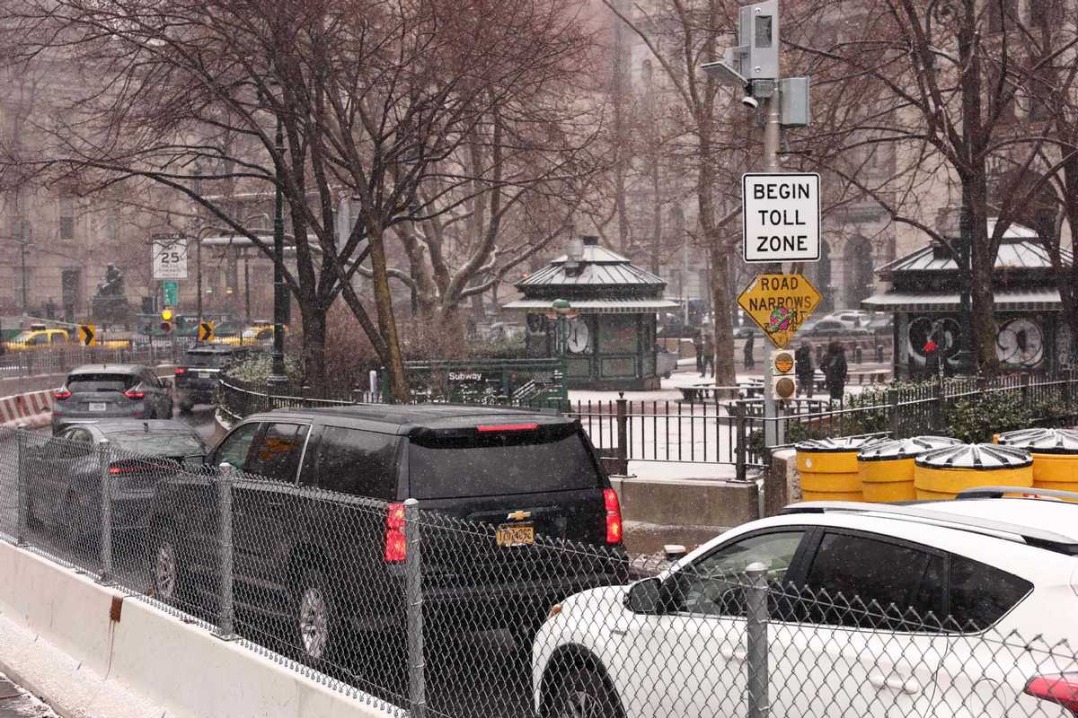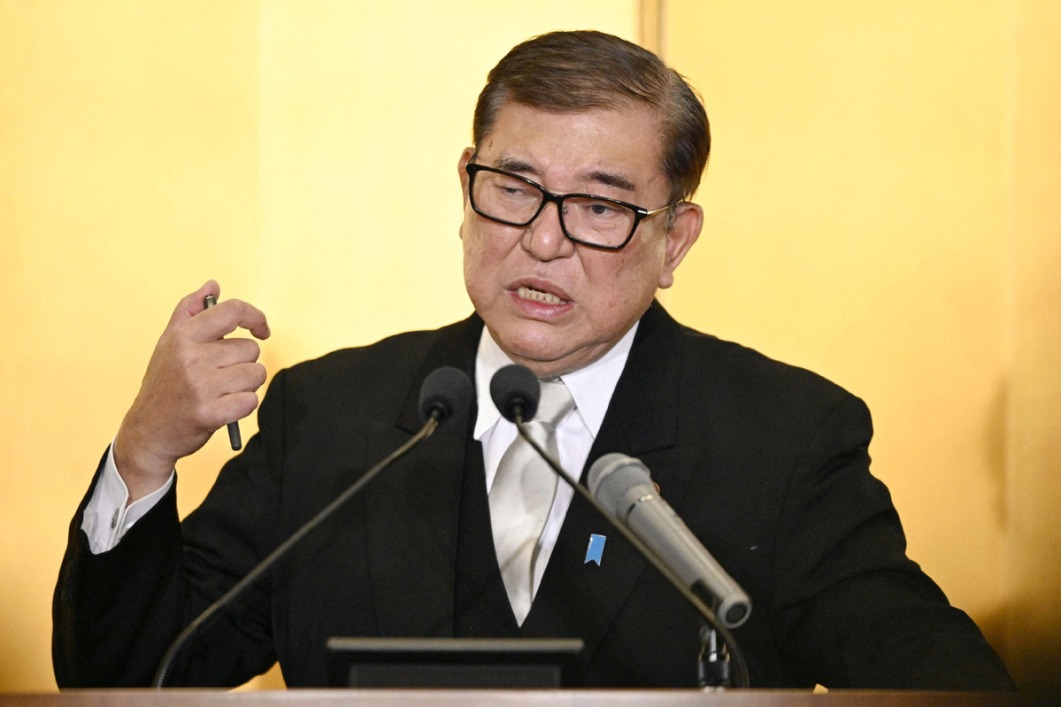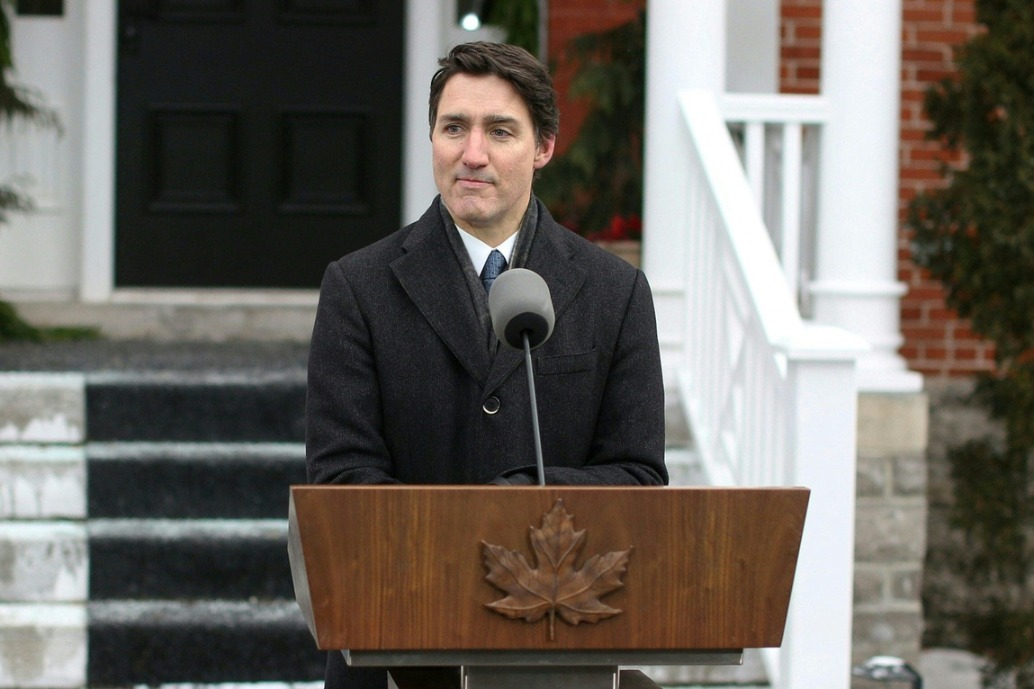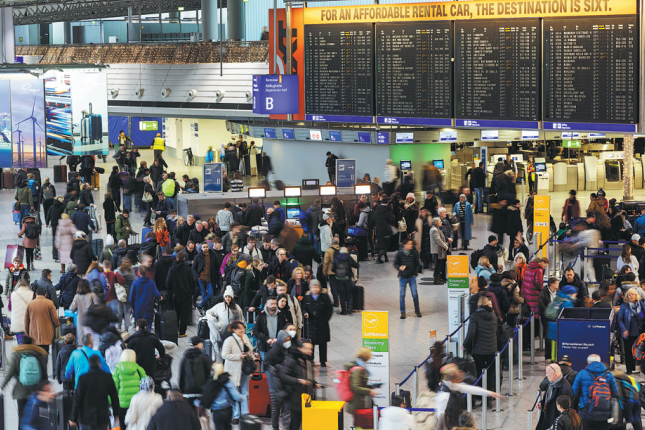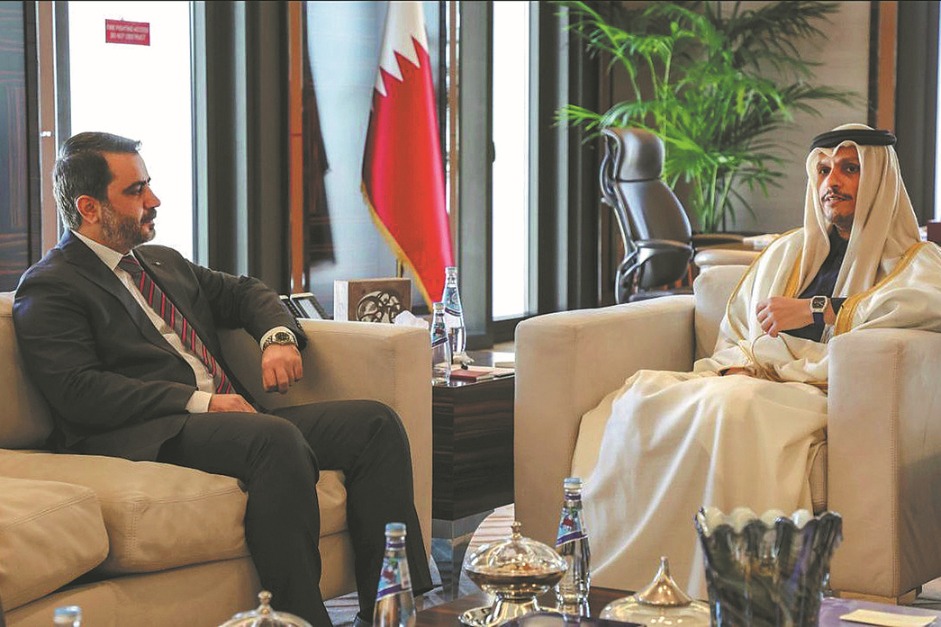Vote of confidence, now Putin turns to challenges

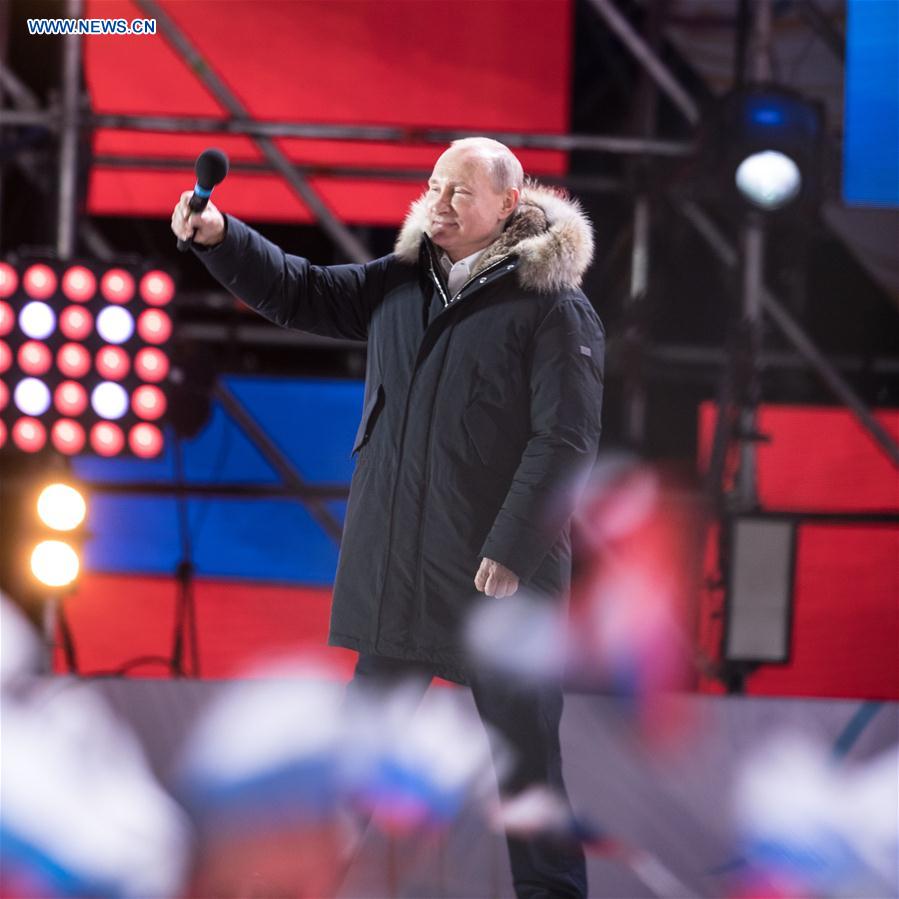
Kremlin will focus on economy and seeking to ease Western sanctions
Russian President Vladimir Putin, after winning the presidency for another six years, will focus on developing the country's economy and seek talks with the West on easing sanctions, experts said.
With nearly 100 percent of the votes counted, the Central Election Commission announced that Putin, who has run Russia as president or prime minister since 1999, had won 76.68 percent of the vote. With more than 56 million votes, it was Putin's biggest win and the largest by any post-Soviet Russian leader.
The victory will take Putin's political dominance of Russia to nearly a quarter of a century, until 2024. Putin will be 71 at the end of his term.
In a late-night victory speech near Moscow's Red Square, Putin told a cheering crowd the win was a vote of confidence in what he had achieved in tough conditions.
"It's very important to maintain this unity," said Putin, before leading the crowd in repeated chants of "Russia! Russia!"
Feng Shaolei, director of the Russian Center at East China Normal University, said strengthening Russia's economy and improving the livelihood of its people will be the key challenge for Putin in his new term.
"Russia's economy is experiencing recovery, although it has to tackle quite a few challenges," Feng said.
"That's why Putin addressed the living conditions in his latest State of the Union speech."
Unique advantages
As the world's largest country, Russia has unique advantages in natural resources, but it needs much more strategic investment than other countries, Feng said.
Speaking of the speech delivered by Putin earlier this month, Feng said the Russian top leader spent more than half the time introducing powerful new weapons, which shows his attitude toward all the threats and challenges the country faces.
"However, even though Russia owns some high-tech weapon, it is unlikely to undertake a long-term arms race with the United States under the current economic status," he said.
"Therefore we can foresee Russia may seek better relations with the US in Putin's next 6-year term, especially over some issues of international concern, such as those in Ukraine, Syria and in the Korean Peninsula," Feng said.
Feodor Lukyanov, chairman of the Presidium of the Council on Foreign and Defense Policy in Russia, agrees. He said Putin has raised Russia's military power but is still working to achieve a major breakthrough on the economic side.
"The past six years have been the toughest for Putin since 1999 when he took his first presidency," Lukyanov said.
"On one hand, President Putin needs continue to find an efficient way to realize industrial modernization in the next six years. On the other hand, Putin is facing a more complicated international environment as the foreign policies of the US and European countries change rapidly."
Therefore it is obvious that Putin will continue to improve his country's defense capability, said Lukyanov.
Yang Bo, deputy director of the Russia Research Center at Shanghai International Studies University, said the newly-debuted weapons may accelerate the military competition with the US, but it is still possible for the two countries to return to the negotiation table.
The communication and cooperation in other aspects can continue, Yang said. "Programs, such as friendly cities, exchanges between businesses, cooperation in agriculture and education are possible."
- China and Russia forging new type of international ties
- Xi, Putin exchange congratulations on election win in phone talks, pledge to deepen ties
- Putin wins Russian presidential election, likely to be sworn in on May 7
- Putin set to win election after 70 pct of ballots counted
- Putin poised to win new term amid heightened Russia-West tension

















